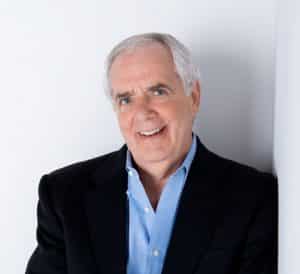
Scott Basinger, PhD
Houston Recovery Center board member Scott Basinger, PhD, has served Baylor College of Medicine for 46 years in a variety of roles including educator, medical researcher, program director, fundraiser, student counselor/advisor, and Dean in the Graduate School of Biomedical Sciences for 20 years. Currently, he is an Associate Professor of Pediatrics, part time.
Basinger opened the Hope and Healing Center & Institute as Founding Executive Director in 2012 and has served Houston nonprofits in various roles for more than two decades. In 2015, the Mayor appointed Basinger to the Houston Recovery Center board.
“I’m passionate about the population Houston Recovery Center serves, the lost part of the population,” relates Basinger. “The part of the population we ignore, and at tremendous costs to not only them as individuals but also to the safe and physical operation of our community.”
Living a Recovery Story
Basinger has a recovery story like our clients and many of our employees. He has no desire to be anonymous about it, especially after 31 years of sobriety.
How did it start? Basinger was at the pinnacle of his academic career when his life took a turn. After working hard to get to that place, he decided it was time to have some fun. Yet that fun, he says, led to an increasingly out-of-control lifestyle. Basinger got heavily involved with alcohol and cocaine and used cocaine extensively for eight years until his intervention in early 1988. What caused Basinger to transition to this lifestyle?
“The truth is I was challenged by my success in 1978 like I was unworthy and couldn’t keep it up,” Basinger relates. “A part of me has never felt comfortable in my own skin.”
Playing in this arena led to some dramatic consequences: Basinger was living in his foreclosed home with $250,000 in debt, multiple lawsuits and arrest warrants for bad checks – just living in total fear and anxiety. He hadn’t paid his mortgage in a year, and the bank was attempting to evict him.
Thankfully, friends at Baylor College of Medicine interceded and “tricked him” into attending his own intervention. That process took him to treatment, where he stayed for six weeks and then followed with six weeks of sober living housing.
“My institution supported me through treatment and then back to work, which is something I’ll always be grateful for,” Basinger remarks. “But we had a contract that if I screwed up once, I’d be gone and never work in the medical field again. I’ve been sober ever since that intervention.”
Basinger said he worked hard on his recovery and that took him to where he is today. He has everything back now — and more.
“Everybody’s ‘rock bottom’ is their own,” Basinger remarks. “I wouldn’t trade mine for anything because it’s what I needed. I was desperate at the end. I didn’t have the courage or willingness to say, ‘I can’t do it anymore. I need help.’”
Evolution of Recovery Programs
Basinger is a trained interventionist and provides addiction education and aftercare services for those who need help in the community. How has he seen recovery programs change through the years? He says people are getting sober much younger and are often poly-addicted, which is having more than one drug of choice. Basinger views recovery these days as much more holistic by focusing on healing the inner being as a way of recovering the outer being.
“We have a lot of things to medicate the internal restlessness that this fast-paced world delivers to us,” Basinger relates. “And knowing that recovery has adapted to fit that fact is reassuring.”
Basinger firmly believes that addiction is an outside solution for an inside job and a dangerous coping behavior for an emotional psychological condition inside. In his case, Basinger used alcohol and drugs to medicate the anxiety and fear of feeling like he wasn’t deserving of the things he had achieved in life.
Basinger’s recovery journey has impacted his projects at work and how he spends his time personally. He said recovery affected virtually every part of his life including more service work. He also has written extensively and is published in the neurobiology world. He is most proud of research with Houston Recovery Center this year for the American Journal of Public Health article about the impact of sobering centers.
“Recovery certainly shaped my career at Baylor College of Medicine,” Basinger says. “I moved away from the research lab into administration as a counselor and dean and really began to make my efforts to be of service to others.”
According to Basinger, statistics show many people get sober and into full-time recovery without using the 12-Step Model. He estimates less than half of people sober today are using the 12-Step Model. It worked for him, but he encourages others to find what works for them.
Just being sober does not make Basinger an authority on the Houston Recovery Center board, he says. But he does believe he has a certain authenticity based on his own addiction history and being in full recovery. Basinger loves being on the board and is incredibly proud of the work of Houston Recovery Center.
“I value everyone who works there,” Basinger says. “Leonard Kincaid and staff have done an outstanding job.”